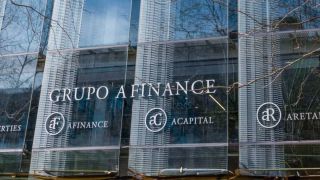
Eurozone inflation rises to 1.1%, the highest level since 2013
51 months later, euro area inflation leaves zero. Eurostat, the EU's statistical agency, estimated the euro CPI at 1.1% on Wednesday, the highest level since September 2013 and five tenths above the November figure.
Prices are affected by the escalation of oil
51 months later, euro area inflation leaves zero. Eurostat, the EU's statistical agency, estimated the euro CPI at 1.1% on Wednesday, the highest level since September 2013 and five tenths above the November figure. The indexes are still very far from the European Central Bank's target of 2%, but deflation risks are definitely behind thanks to the rebound in oil prices. And yet, the most reliable indicator of price developments - core inflation, not counting energy, and without the most volatile elements - remains at 0.9%, barely one tenth above November.
The prices are mirrors. And eurozone inflation reflects several stories to tell. The fundamental one is the one of the rebound of the oil, of 2.5% in a single month. But there are many others. The arrival of Donald Trump to the White House and his promised fiscal stimulus will push up world GDP with the help of Chinese economic policy: analysts expect price increases by that side.
But it is logical that a rise of half a point in a single month ignites the alarms in a continent so marked by the German phobia to the inflation. The rise in prices has positive effects, but also negative: this is the way things are, always, in the stormy waters of the economy. The rebound in inflation expected throughout 2017 will undermine one of the pillars of Europe's mediocre recovery: private consumption. At the same time, it may be the catalyst for a wage increase in economies such as the German one, which has never just arrived but which would be very beneficial to the eurozone as a whole.
Ben May of Oxford Economics explains that a rebound in inflation "could create a virtuous circle" that would allow the ECB a gradual exit from its unconventional policies and give some air to banks' income statements. The bad news is that this would also be noticeable in a rebound in debt interest rates, with countries, the financial sector, businesses and families still heavily indebted in Europe. And could cause a rebound of the euro: bad news for exports.
All this is still far away: the reality is that, despite the upturn, European inflation continues at around 1%. And the latest rises are almost purely statistical: "The acceleration of inflation was expected, was taken for granted," according to Capital Economics. But the European economy still carries so much lead in the wings; The price indexes only say that the patient improves, but the disease is still there.
- Featured news
-
Consigue tu hipoteca ideal con ayuda experta y mejores condicionesAugust 11th 2025
-
 Incorporamos a Carlos Martín como nuevo Director de nuestra oficina de Barcelona en aFinanceSeptember 19th 2024
Incorporamos a Carlos Martín como nuevo Director de nuestra oficina de Barcelona en aFinanceSeptember 19th 2024 -
 Las finanzas bajo el foco con nuestro Director NacionalSeptember 12th 2024
Las finanzas bajo el foco con nuestro Director NacionalSeptember 12th 2024 -
 En aFinance participamos en el Evento ‘Comunicación Eficaz’ en Roca Barcelona GalleryMay 25th 2024
En aFinance participamos en el Evento ‘Comunicación Eficaz’ en Roca Barcelona GalleryMay 25th 2024 -
 En aFinance, nos complace anunciar la incorporación de Patricia Marqués como Coach EjecutivaMay 23rd 2024
En aFinance, nos complace anunciar la incorporación de Patricia Marqués como Coach EjecutivaMay 23rd 2024 -
 En aFinance hemos superado los 1.150 millones de euros en valor de transacciones durante 2023May 3rd 2024
En aFinance hemos superado los 1.150 millones de euros en valor de transacciones durante 2023May 3rd 2024






